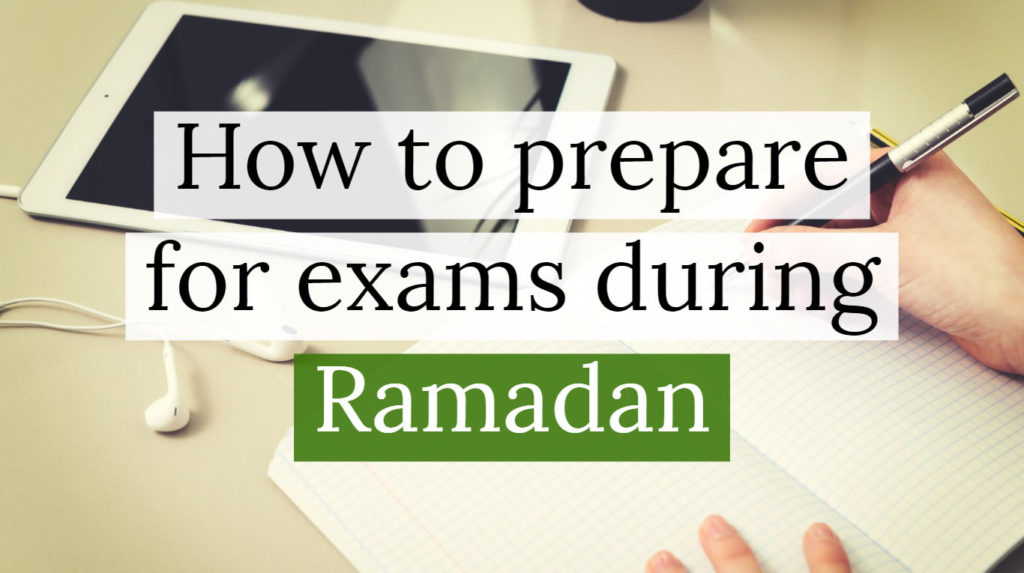Ramadan is a time for family, friends, and reflection. That is, until you realize your exams are going to happen while you’re fasting. Balancing both can be a challenge so we’ve compiled a list of tips that’ll help you balance fasting and acing exams…
Before Iftar
Plan ahead: Work out what you need to get done and in what time period and plan your breaks around prayer times.
Take regular breaks: Don’t push yourself too hard. You’re unlikely to find revising solidly for hours on end very productive, empty stomach or otherwise. Try working for one hour then give yourself a 10-minute break. After a few of these sessions, give yourself a slightly longer break as a reward before getting back to it. Watch an episode of your favourite TV show, read a book or catch up with a friend.
Wash: Try splashing your face with cool water to revitalise or have a shower to make you feel fresh and ready to work. As you wash before prayer, you may find this wakes you up and gives you the strength to keep studying.
Make sure your sleeping pattern is okay: You’re likely to be staying up late and getting up early so your schedule will be jumbled up. Because of this, you may want to use the daylight hours to catch up on sleep. It’s important to ensure you’re properly rested – not only for the sake of your grades, but for your well-being. If you have an exam coming up, it’s likely you’ll need to tweak your sleeping pattern to ensure you’re well rested – and don’t risk sleeping in and missing it or being exhausted during the exam!
Take it easy: We know you want to do well but you mustn’t put too much pressure on yourself. Ensure you don’t overload yourself in the daytime when your body is under stress.
After Iftar
Prepare your meals: It can be difficult to cook filling, healthy meals every day – especially when you’re super hungry! Instead, try cooking large batches of a few healthy meals and popping them in your freezer. You can buy cheap Tupperware and divide the meals into portions, then all you have to do is pop them in the microwave and voila!
Eat lots of healthy food: It can be tempting to gorge on lots of fatty, stodgy, fried foods once you reach iftar as, after being hungry all day, you’re starving and craving filling, unhealthy foods. But if you give in to the cravings, you’re likely to end up feeling lethargic – not exactly optimum for studying!
Especially for suhoor, you should try and incorporate as many ‘brain foods’ into your diet as possible. Think: avocado, dark chocolate, eggs, walnuts, bananas and almonds. These will improve your focus and help you retain information as you study.
Stay hydrated: If you’re studying after iftar or Taraweeh (extra night prayers performed only during Ramadan), drink lots of water. Hydration is so good for your brain and will help you feel well and ready for your studies. In fact, it’s important to drink as much water as possible during sundown to prepare your body for the day ahead.
Eat slowly: When you do eat, try and resist the temptation munch it all down quickly. If you eat slowly the energy of your food will slowly be released into your system, keeping you energised for longer.
You might feel like you’re missing out on the spiritual benefits of Ramadan because you don’t have time for extra prayers, Quran recitation or charity work. Don’t forget that revising is spiritual too! Educating yourself is also an important part of religion.
Revise with good intentions: to increase your knowledge and to make your teachers and loved ones proud of you. And remember that sometimes small gestures are most valuable.











